I participated in a cool event yesterday, “Exploring the Relationship between Police and Diverse Communities – A Theatre Project”.
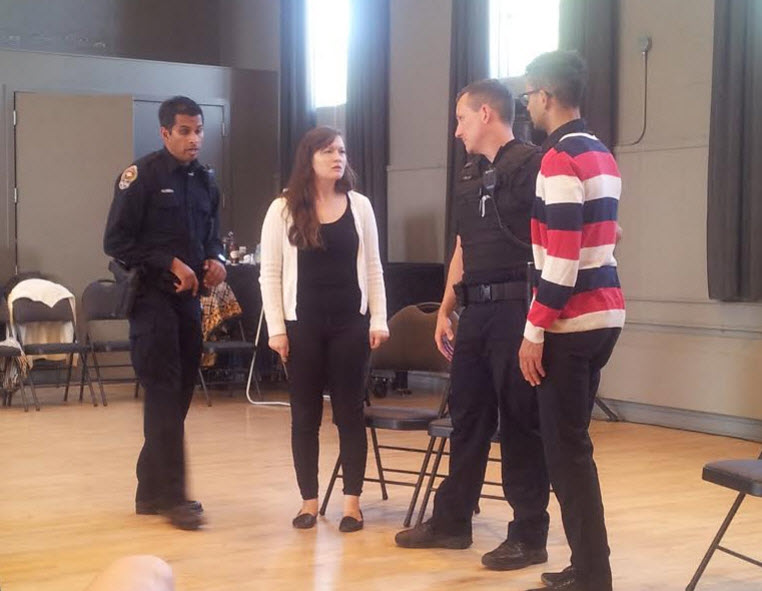
This was a collaborative effort involving Victoria Police Department, the Inter-Cultural Association of Greater Victoria and facilitated by Transformational Theatre practitioners, Lina de Guevara (Founder of Puente Theatre, and profiled on this blog in 2012) and Victor Porter, and a variety of local theatre actors (students and professionals). “Transformational Theatre is the integration of several techniques including image theatre, forum theatre, playback and non-blocking improvisation.” The event was one of a series of events associated with ICA’s Community Partnership Network, of which I’m a member.
The event used Transformational Theatre as a tool to help us understand the relationship between ethno-cultural community members and the police. Using real life stories gathered from the Victoria Police Department and local community members, a varied (yeah!), interactive (yeah!) format was employed to dialogue with the audience, all towards busting cultural silos. Fascinating to be part of this. Focusing on facilitation process, here is some of what went down.
Event kickoff
We started off with introductions from the organizers; including Steven Baileys and Paulina Grainger from ICA, A/Chief Victoria Police, Del Manak, and a First Nations territorial welcome, as is custom, where I live.
Timeline of Canada
We created a timeline of Canada. Lina asked, “who has lived in Canada for less than 6 months?”, then “who for less than 1 year?”, less than 2 years, 3 years, 4 years, 5 years, 10 years, 15 years, 20 years, 30 years… ” up to “whose parents were born here… grandparents… great grandparents… ?”up to “time immemorial” (First Nations people). One rep from audience came forward for each time slot / question – voila – a historical timeline for Canada!
Us vs. Them
Actors assume a static pose. On one side, immigrants. On the other, police. Audience is asked, “what is this an image of, to you?” Answers are given.
Next, we are told – “you can have 10 seconds to change a person’s pose; you can’t go too much against their nature”. Audience volunteers respond, one at a time; each with only 10 seconds to alter one or more of the actor’s poses – e.g., towards lessening tension.
The above is interspersed with brief commentary and feedback.
Police arrive at your door
A scene unfolds… Two police officers arrive at the house door of a father and his daughter, immigrants from the Congo. A neighbour had called police, saying they heard violence inside. The characters and situation is complex. At the end of the day, it resolves unsatisfactorily. Cultural barriers remain.
We form in small groups of five. We are asked to discuss what we saw and come up with some “solutions”; e.g., alternative paths.
One spokesperson from each group shares a solution or two, with the group as a whole. Lina’s instructions to the spokespersons are to share “with brevity and substance.” Amen. Lisa has been down this road before.
Break time
And whom did I meet? Shanna Shanna Grant-Warmald of Restorative Justice Victoria and Bowen Osoko, of the Victoria Police Department. Love those breaks; to renew, and make new, community connections.
Scenes and “Stop”
A variety of scenes take place; including: police stopping a car late at night that has two black men inside; an immigrant family household at odds over whether to involve the police or not; an interaction between police and a temporary foreign worker on a downtown street corner. Five scenes in total.
Each scene featured complex situations and characters; including between the police themselves. The scenes were played out, in part, with cultural biases obvious.
For each scene;
- police and actors play out each scene – 2-3 minutes total
- the scene is then replayed, with instructions given to audience to yell out “stop” … as a signal to for the person who yelled it out, to intervene in the scene, take the place of one of the actors, and act out the scene (with the others); not surprisingly, these re-takes were conducted in a more culturally-sensitive manner
- after each stop/intervention complete, there was an intentional debriefing, involving scene participants and wider audience
Voices
Near the event end, each immigrant actor offered their voice, in the form of a one-liner, on the immigrant experience.
The police officers followed. One line in particular stuck with me when one of the officers said, “what mistake have you made in one second?” (the impact of a police decision, in-the-moment, can reverberate for individual, family, community… for years).
Kudos
A tip of my hat to the actors, police and others, facilitators, organizers, and sponsors. Your effort, preparation and execution were awesome. Thank you.
The event offered much, to the community and participants.
Personally, I hope to apply some of the processes in this event, in my own workshops. If you’re a facilitator, wouldn’t you?
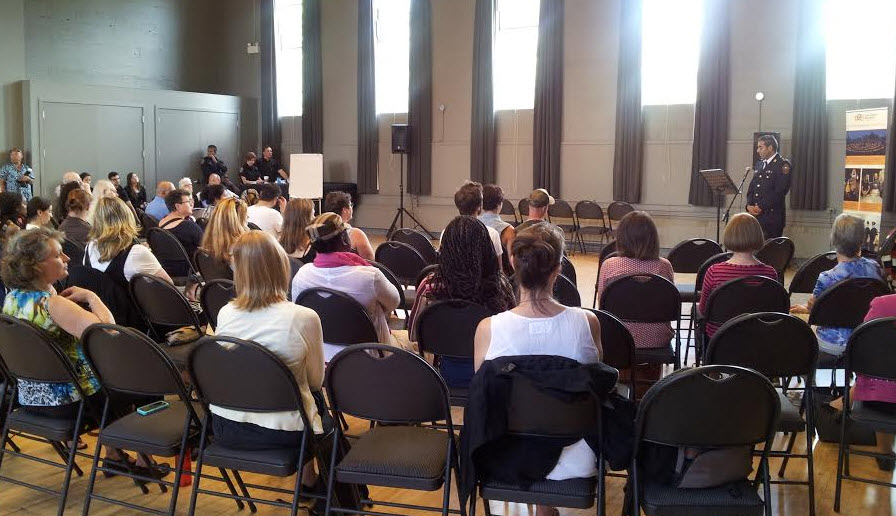

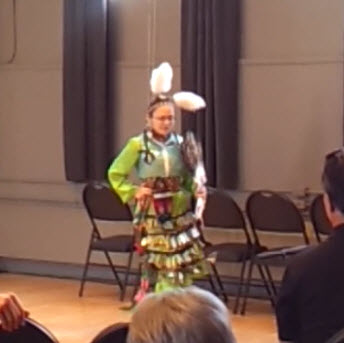
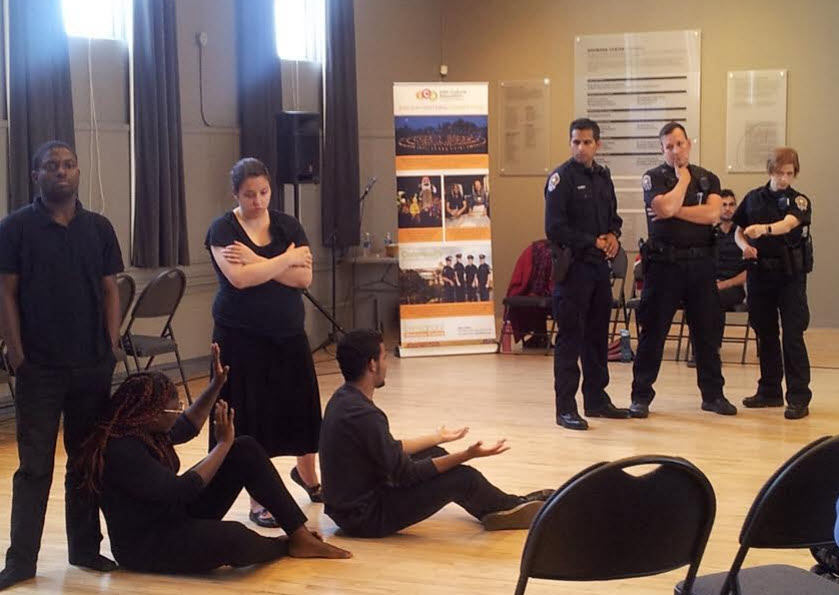
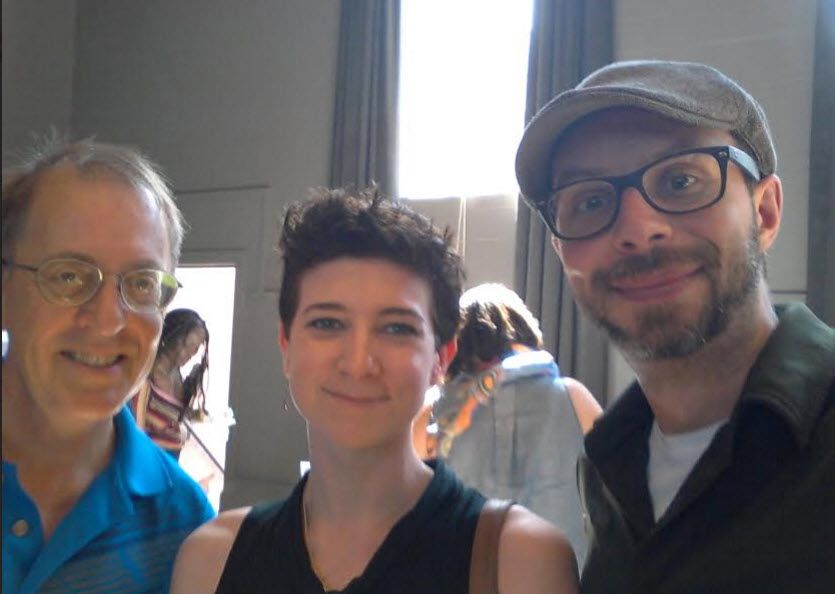
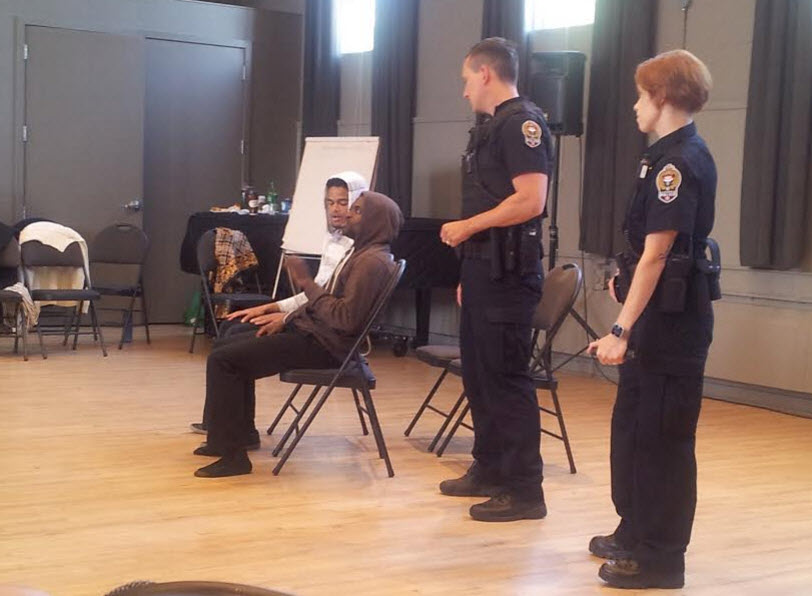
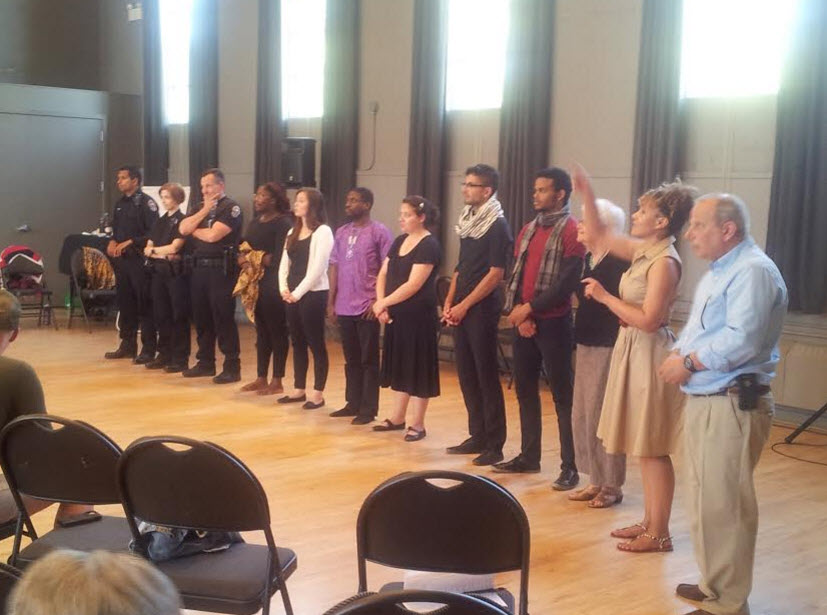

Speak Your Mind